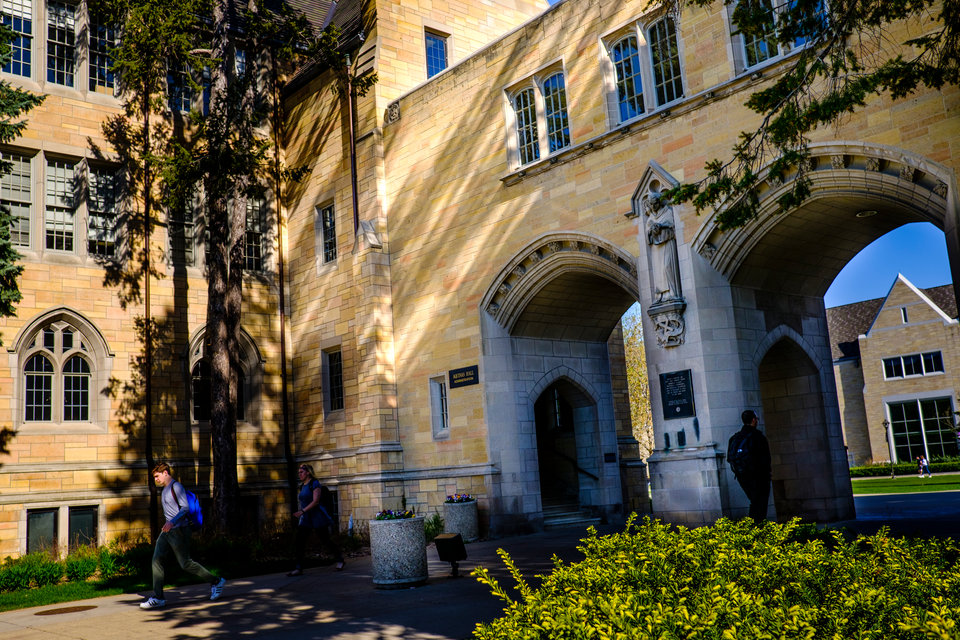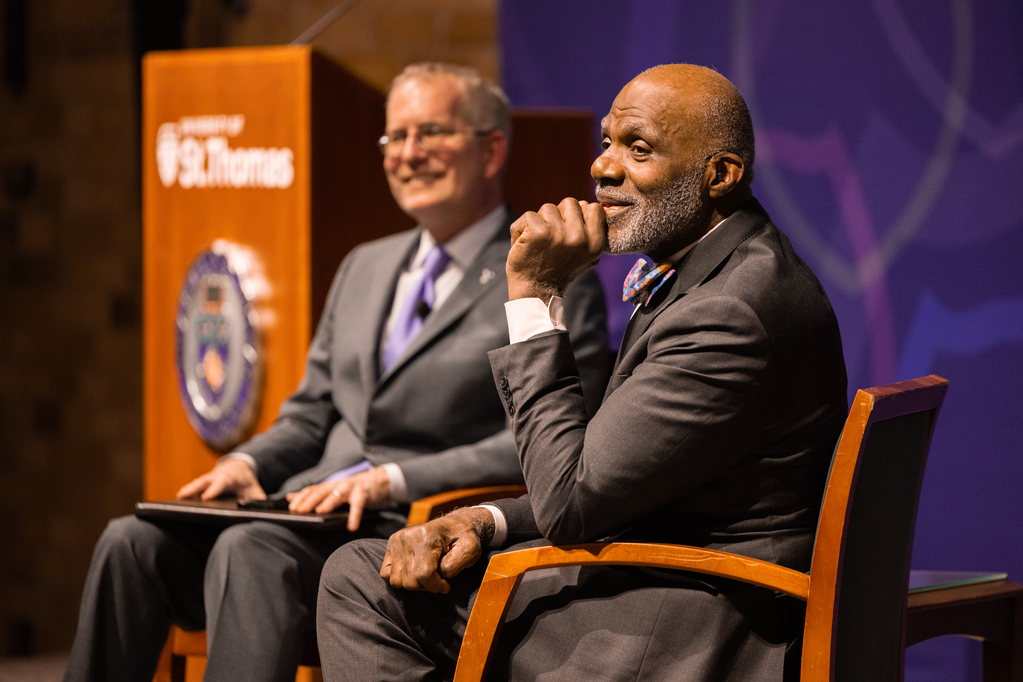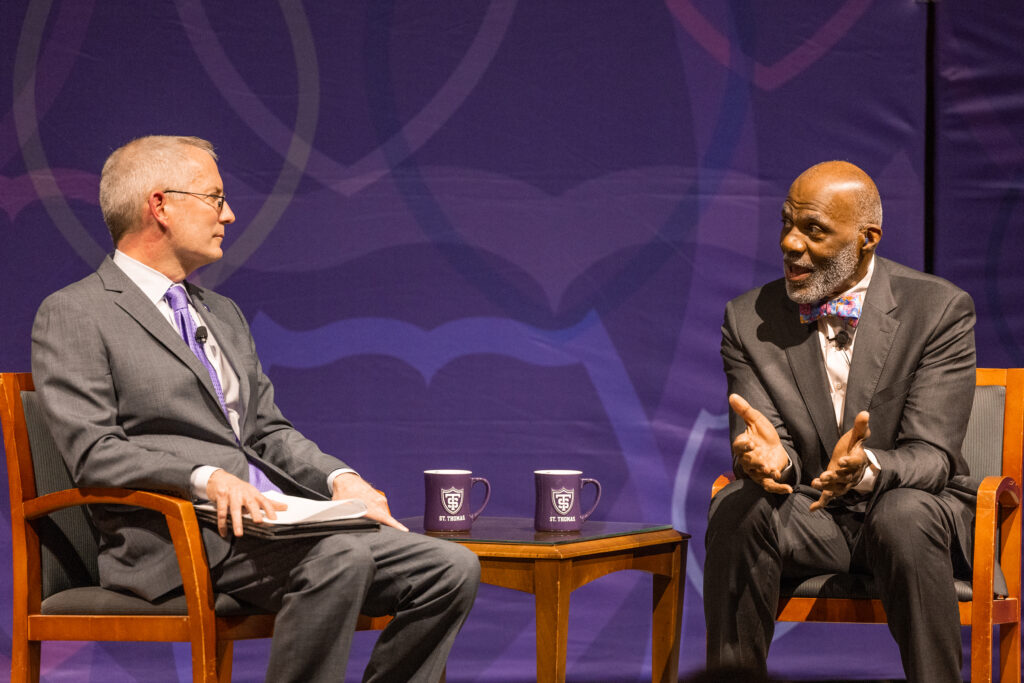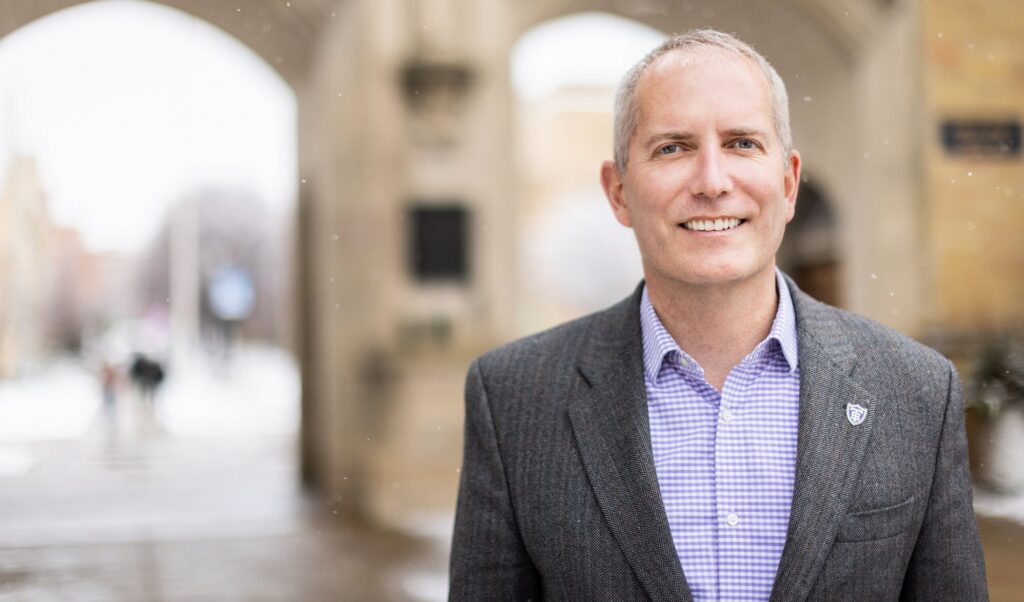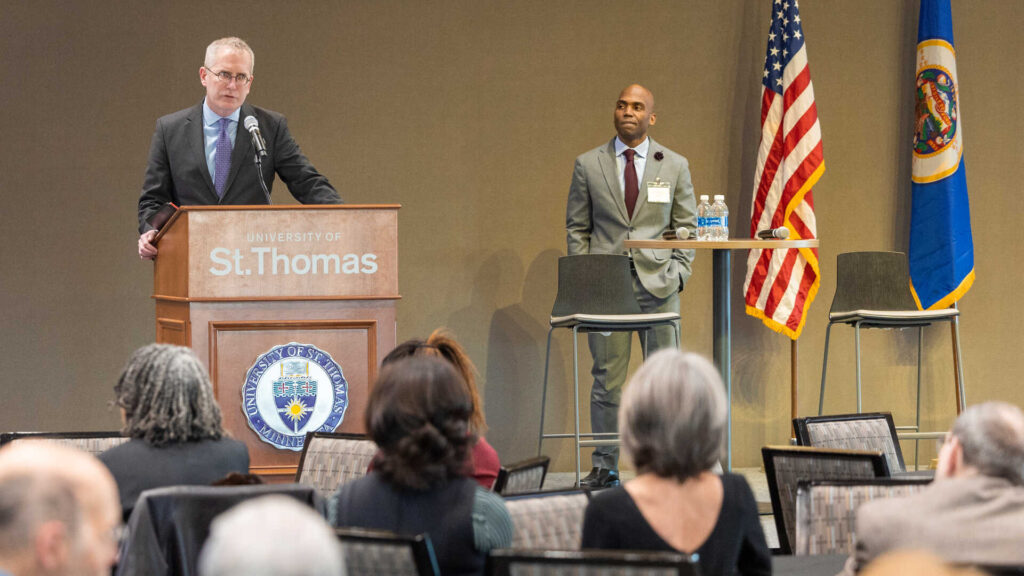Frequently Asked Questions
What is the vision for the new College of Health?
Informed by Catholic social teaching, the College of Health will educate health providers and leaders to skillfully, compassionately and collaboratively advance the physical, mental, social and spiritual well-being of individuals, families and communities.
What does the new college hope to accomplish?
The College of Health aims to help solve systemic health care problems. We’ll do this by reimagining how those who work in this field can address the wellness of the whole person, and by meeting an acute demand for health care practitioners who possess technical skills and cultural competencies. The new college will be imbued with the spirit of the 150-year tradition of Catholic health care, embody the principles of social justice and engage with underserved communities. It also will consider the health needs across both rural and urban communities.
What exactly is “Catholic social teaching” and how is it applicable to the health care world?
The key themes of Catholic social teaching help directly inform our university’s mission and values. For example, this teaching instructs us to prioritize the needs of the poor and vulnerable. In researching the potential for this new college, we saw many communities are underserved when it comes to health care, and we seek to address that systemic issue by developing professionals who possess both technical skills and cultural competencies. This also requires us to reimagine how health care professionals can address the wellness of the whole person, taking their physical, mental, social and spiritual well-being into account.
How does a new college of health align with St. Thomas’ strategic plan?
Health and wellness programs were identified as a key focus in St. Thomas’ most recent five-year strategic plan. This was in response to the unmet need in our community for these professional areas, as well as the value they add to the common good – which is exactly in line with our mission.
How did St. Thomas explore the idea of this new college?
Together with the trustees, we met with a variety of community leaders to assess needs, and have studied demand for health professions in the state of Minnesota, including 10-year projections. Research showed shortages in key professional areas (such as nursing). It also showed a need to educate health professionals holistically, so they enter the workforce accustomed to partnering across the health spectrum to provide total care, as opposed to entering with a “siloed expertise” in their own professional areas.
How are you funding this new college?
In February, our Board of Trustees allocated money from our quasi-endowment fund for start-up costs. Longer term, the university will fundraise an endowment to help sustain and subsidize the budget over time.
What programs will be included in the college?
We will house our existing School of Social Work and the Graduate School of Professional Psychology with a new school of nursing.
How big do you envision this college to become? How many students are you anticipating being enrolled in the nursing program specifically?
We will have a better idea of enrollment projections once the nursing school plans are solidified. We do not anticipate this new school to dramatically grow overall enrollment at St. Thomas.
How will this college differentiate itself?
We’re reimagining how health care professionals can address the wellness of the whole person, using an integrative and interdisciplinary approach to health care delivery. In underserved communities, for example, there can be a multitude of factors that impact the well-being of an individual or family. Those factors can include everything from nutrition and sleep, to mental health and education. We will teach our students how they can approach health care from the whole-person perspective by looking at all of those factors. We’re also striving to meet an acute demand for health care professionals who have both technical skills and cultural competencies. Our college, for instance, will embody principles of social justice, engagement with local underserved communities, as well as global engagement. This is in line with St. Thomas’ mission to educate morally responsible leaders who serve the common good.
Has this new college already been endorsed by the board?
Yes, the board has endorsed St. Thomas to advance steps required to establish a new college.
What is the expected timeline for opening the new college? When is the new school expected to begin admitting nursing students?
The new college is currently in operation, with courses offered through the existing School of Social Work and Graduate School of Professional Psychology. Definitive timelines for the new nursing school are still being established.
Are you currently considering launching a medical school part of this new college?
No. Dental and veterinary programs also are not in scope.
What is the likely location of the new college?
While our founding dean will lead the process to determine a final location, our Minneapolis campus is a lead option.
When does your new founding dean start?
Our new vice president and founding dean, Dr. MayKao Y. Hang, of the College of Health will start at St. Thomas on a part-time basis Oct. 7, reporting to Dr. Richard Plumb, executive vice president and provost. She will transition to her new role full time Nov. 4.
Your founding dean doesn’t have a traditional health care background – what about her experience excites you the most?
Dr. MayKao Hang is a proven, values-based leader who is passionate about the well-being of underserved communities and a champion of addressing disparities, and her background makes her an exciting fit to lead the new college. As president and CEO of the Wilder Foundation, for example, she designed programs and initiatives to address complex community issues and worked to integrate behavioral health services. That integrative approach is exactly how our new College of Health seeks to differentiate itself. She also has two and a half decades of experience pioneering services; for instance, she developed programs to address disparities in children’s mental health and grow the number of licensed clinicians of color. She also reformed traditional county mental health services and showed counties how to work with health plans for elderly services across the state. She will work with various faculty in existing programs to develop new curricula, hire new faculty and cultivate health provider partners.
